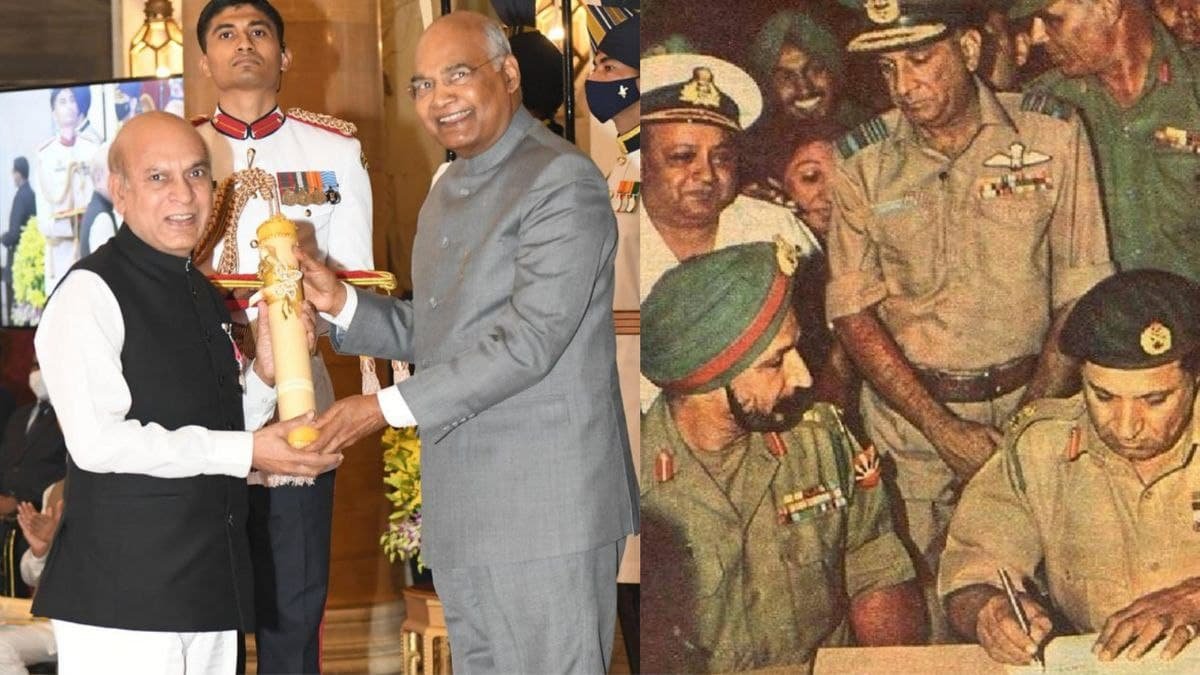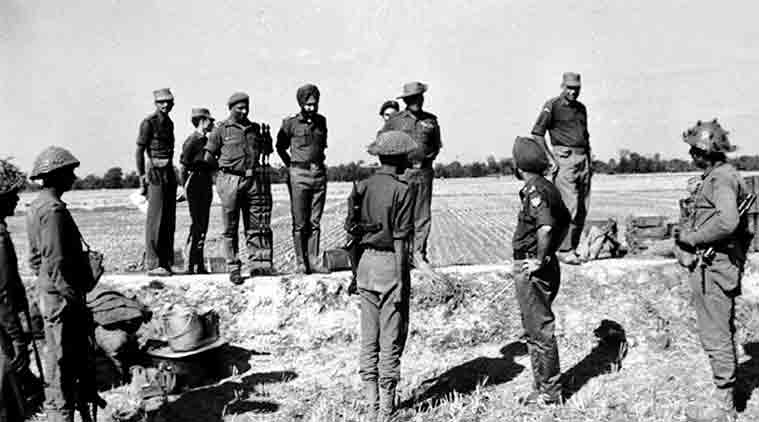Padma Shri Award To Pak Soldier Who Help India To Liberate Bangladesh

(This was originally posted in India Today by Abhishek Bhalla)
Documents and maps stuffed in his boots, a young 20-year-old officer in the Pakistan Army posted in the Sialkot sector managed to cross over to India in March 1971 as atrocities in East Pakistan spiraled and genocide was being planned.
Details of the Pakistan Army’s deployment and Rs 20 in his pocket were his prized possessions as he crossed over, and ended up being grilled by Indian forces at the border suspecting him of being a Pakistani spy.
Also Read: India’s First Woman Air Marshal Dr. Padma Bandopadhyay Awarded Padma Shri
Soon, he was taken to Pathankot, where senior military officers questioned him. It was when he presented documents of the Pakistan Army’s deployments that the officers knew it was serious business.
The soldier was sent to Delhi where he stayed in a safe house for months before moving to East Pakistan, training the Mukti Bahini in guerilla warfare to take on the Pakistani army.

Also Read: 1971: Largest Military Surrender Record
This is the story of Lt Colonel Quazi Sajjad Ali Zahir (Retd) who went on to serve the Bangladesh Army and is a highly decorated officer.
Lt Colonel Zahir proudly says that there is a death sentence pending in his name for the last 50 years in Pakistan, almost showcasing it as a badge of honour.
Conferred with Bir Protik, the Indian equivalent of the Vir Chakra for gallantry, and Bangladesh’s highest civil honour – Swadhinata Padak, he is no stranger to laurels.
Now, Lt Colonel Zahir has been conferred with the Padma Shri, one of the highest civilian awards in India, in recognition of his sacrifices and contribution to India’s success in the 1971 war against Pakistan that led to the creation of Bangladesh.
The award has been presented to him at a time when India and Bangladesh are celebrating 50 years of the war. Incidentally, Sajjad has turned 71.
‘Jinnah’s Pakistan Became A Kabristan For Us’
It was the atrocities against his own people in then East Pakistan that triggered everything. Narrating his intriguing story, he says, “I have a photographic memory and remember every event clearly.”
Recalling the reasons for his escape from Pakistan, he says, “Jinnah’s Pakistan became a kabristan (graveyard) for us. We were treated like second-class citizens, with no rights. We were a deprived population. We never got a democracy as was promised; we only got martial law. Jinnah said we would have equal rights but we didn’t have any. We were treated as servants of Pakistan.”

“As a member of Pakistan’s elite para-brigade in Sialkot, I was an isolated human being. But then I thought I had three people in me- me, myself, and I. So, I started planning which route to follow. I decided to take the Shakargah route towards Jammu, which was probably least patrolled,” he recalls.
A second-generation military officer, he is proud of all those who serve their country. His father was an officer in the British Army and was part of the Burma (Myanmar) action in the Second World War. His teenage brother was part of that Mukti Bahini that fought for the freedom of Bangladesh.
Recalling Escape From Pakistan, Battle Of Shakargarh
Recalling his escape from Pakistan, he says as he crossed over to India, there was firing from the Pakistani side. In return, the Border Security Force (BSF) on the Indian side also retaliated with fire.
“I jumped into a large gorge and was safe as firing continued from both sides. I managed to cross the entire path in the gorge and went into India to be apprehended.”
Later, he was taken to Delhi, where he spent months speaking to senior officials from various agencies.
“They never told me I was under custody. I was given good food, they treated me well but requested me not leave that house in Safdarjung Enclave. Very senior officers came and talked to me during the day and night.”
Calling himself a master of map reading and night navigation, Lt Col Sajjad says he was thorough with his coordinates and briefed Indian officers about Pakistani deployments accurately.
Refusing to take any credit for India’s success in the sectors about which he provided information, Lt Col Sajjad says the Indian Army penetrated 56 miles into Pakistani territory in the Battle of Shakargarh.
‘Pakistanis Were Fighting For An Unjust Cause’
Also Read: 138 Terrorists Killed By Security Forces In J&K This Year
From Delhi, he was sent to East Pakistan where he served at a camp adjacent to the Tripura/Assam border in a hilly area where there were 850 Mukti Bahini men and trained them in guerilla warfare.

“When soldiers fight, they fight for justice; Pakistanis were fighting for an unjust cause. The army that is involved in rape, murder, looting, and genocide has no morale to fight; that is the reason why they surrendered.”
Praising the Indian Army, he says, after the surrender, the Indian Army protected the Pakistan Army. Otherwise, they would not have survived and would have been killed by Mukti Bahini.
“Sorry to say they take you for a ride and attack Kargil and other places in India. They had no sense of gratitude that their lives were saved by Indian forces,” he adds.
In the end, Lt Col Sajjad makes an appeal to the young generation of Bangladesh and India.

“We fought together and won a massive victory in 1971; it was the finest hour for India and Bangladesh. But new generations are forgetting about their glorious past, that is 1971. We should teach our children. It was tragic, but has a lot of lessons to be learned for the cause of humanity.”






👍👌
Hope the whole of India hears of this story.